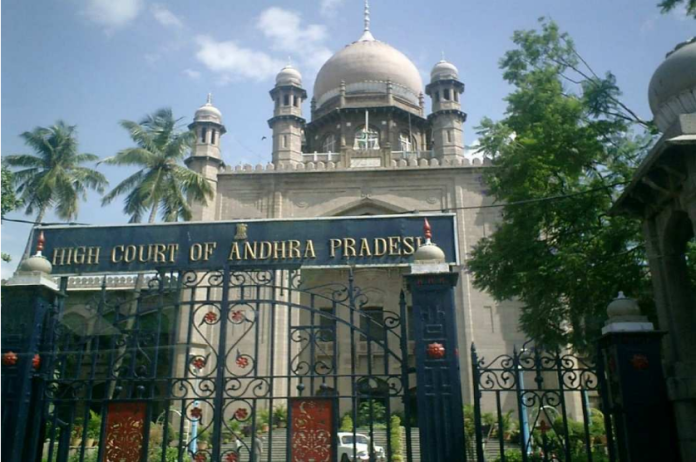The Andhra Pradesh High Court closed a Public Interest Litigation (PIL) filed highlighting the issue that the diagnostic laboratories were issuing the pathology reports without the signatures and certification by competent medical professionals.
The PIL has been filed with a view to highlight the inaction of the Government in not implementing the judgment of the Supreme Court rendered in the case of North Gujarat Unit of Association of Self Employed Owners (Paramedical) of Private Pathology Laboratories of Gujarat v. North Gujarat Pathologists Association, dated 12.12.2017, as also the guidelines issued by the National Medical Council.
It is also the prayer of the petitioner that the provisions of the Andhra Pradesh Allopathic Private Medical Care Establishments (Registration and Regulation) Act, 2002 are not being followed in letter and spirit.
Reliance was placed upon the order, dated 12.12.2017, whereby the Apex Court while disposing of the Special Leave Petition and considering the stand of the Medical Council of India ordered that the laboratory report could be counter-signed only by a registered medical practitioner with a postgraduate qualification in pathology.
Advocate General for the State, however, drew the attention of the High Court to a previous order, dated 12.09.2017 wherein the Supreme Court had observed as under:
“Learned Solicitor has also pointed out that certain guidelines under Section 12 of the Act read with Rule 9(3) of the Rules have been circulated and objections have been invited. The said guidelines are available on record.
It is further submitted that various associations have participated in the discussions and the guidelines presently are at draft stage and will be finalized soon.
We have perused the said guidelines and it is our considered view that guidelines Nos.5.4 and 5.5, if finalized, will adequately take care of the issues arising subject to the concerned states choosing to adopt the provisions of the Act and the Rules framed thereunder as contemplated under Section 1(3) and Section 56 of the Act. To enable the exercise to be completed we adjourn the cases to 6th December, 2017 by which date the learned Solicitor General will inform the Court about the progress achieved in respect of finalization of the guidelines as well as the amendments proposed to the Act.”
With reference to the order referred to hereinabove, what was sought to be highlighted was that an option had been given to the States to choose to adopt the provisions of the Act and the Rules framed thereunder more so in terms of Section 1(3) and Section 56 of the said Act. What was sought to be highlighted was that in the State of Andhra Pradesh, there was already in force the Andhra Pradesh Allopathic Private Medical Care Establishments (Registration and Regulation) Act, 2002 under which Andhra Pradesh Allopathic Private Medical Care Establishments (Registration and Regulation) Rules, 2007 were also framed and were in operation prescribing the requirement of having a competent medical practitioner depending upon whether the diagnostic laboratory was a small, medium or a large diagnostic laboratory attached to a hospital.
It is stated that with a view to enforce the provisions of the Act of 2002 and the Rules of 2007, notices have since been issued to some of the laboratories to ensure strict compliance with the requirement of the same and that replies have also been received on which appropriate orders would be passed.
Advocate General submits that all those notices which had been issued with reference to the provisions of the Central Act would be withdrawn and fresh notices, if necessary would be issued.
K.S. Murthy, Senior Counsel, for the Andhra Pradesh Private Medical Laboratories and Radiology Technicians Association, however, undertakes that the members of the Association would strictly comply with the provisions of the Act of 2002 and Rules of 2007 framed by the State in that regard.
Considering the fact that there is already in place a mechanism as prescribed under the Act of 2002 and the Rules of 2007 and the authorities are already in the process of enforcing strictly the provisions thereof, the Division Bench of Chief Justice Dhiraj Singh Thakur and Justice Rao Raghunandan Rao do not find any need to proceed further in the matter.


